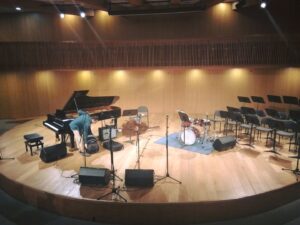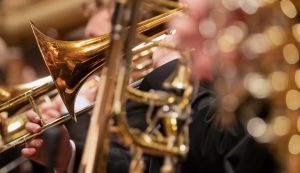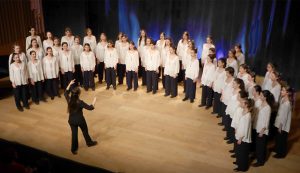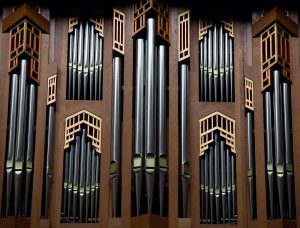Department Head: Dr. Alex Kornhandler
Conservatory students participate in Theory classes on a regular weekly basis, within an eight-year curriculum. Among the main areas of study are Theory, Aural Training, History of Music and Music Form. From their fourth year on students are offered also courses in Harmony and Analysis up to the preliminary level of Music Academies.
A special composition program
The program is intended for students with training-professional background in the various performative areas (at least 4 years of study), who have acquired basic musical skills (including at least 3 years of basic theory and aural skills classes), and who are truly interested in the creative aspect of music.
Applicants should be at least 12 years old, and not older than 14.
Admission:
Following a personal interview, all applicants will be asked to take an admission exam in theory, solfege and aural skills.
Program of Studies:
The Composition Program comprises of both personal and group sessions within a framework that includes:
- Group sessions: small groups (up to 7 students per group) in a fixed schedule (once a week). These sessions are devoted to subjects of study relevant to all musical foundations.
Duration of group session: two weekly hours.
- Personal sessions: These sessions, devoted to instruct students in composition, are intended to give personal guidance according to the specific requirements of each student and in relation to the relevant project of each student at any given time.
Duration of personal session: one weekly hour.
- Special activities: In addition to the regular sessions, workshops on various subjects will take place, under the guidance of musicians who specialize in the different areas of performance. In addition, there will be sessions with composers and researchers in the fields of theory and analysis.
Study areas:
Elements of notation
Principles of syntax and intonation
Melodic archetypes
Texture principles
Traditionaltonal harmony
Structural elements and formative principles
Different kinds of counterpoint
Tonal and structural analysis
Instruments and orchestration doctrines
Principles of acoustics
Familiarity with repertoire
Improvisation
Requirements:
Composition:
Each student has to prepare and present three compositions during each school year.
Research: each student has to prepare and submit two research papers on theoretical and/or analytical subjects during each school year.
On-going exams in theory elements and aural skills: Each student has to prove his knowledge and progress in the area following specific preliminary requirements which are prerequisite to the studies. This exam will take place each semester.
Acquaintance with the repertory: As an integral part of the studies, a special emphasis is placed on acquaintance with a vast and varied repertoire. The repertoire chosen is a fundamental basis in the course of studies. Throughout each school year students’ knowledge of the chosen repertoire will be examined in different ways.






